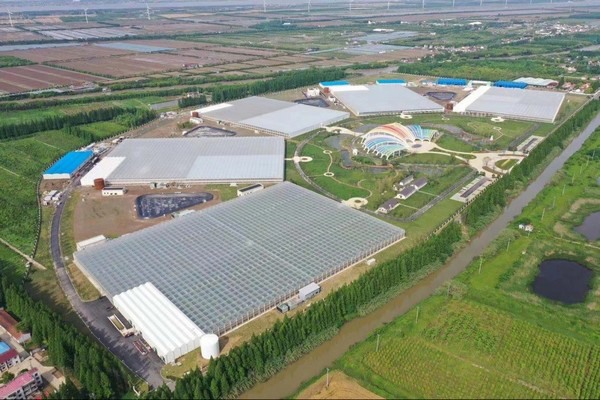In China, it is not unusual to take a learning curve into account when it comes to new projects. With a new greenhouse, people consider a learning period that could last for a couple of years. At a certain time, a turning point needs to occur by which the greenhouse can become profitable. 
"If they still see progression at this point, they will keep the project around,” says Robert Keijzer, CEO of Kubo China Branch. “It is a different approach than the one used in the west. Chinese entrepreneurs often have a different approach to earning money. Investors want to see a return quickly. You built a greenhouse, as large as possible, and then money will be made back. If this doesn’t go fast enough, the investors become impatient. It is a completely different world.”
Supervision after construction
In order to take horticulture in China to the next level, supervision is essential. Currently, this mainly happens by sending along an agronomist during the starting period of a new greenhouse. The idea is that the agronomist, often a retired Dutchman, teaches the people at the location. “But how many projects like that can still be called successful after two or three years?” Robert wonders. “The answer; zero.”

FoodVentures project in Shanghai
However, it can be done differently. Robert points to the FoodVentures-model as an approach that proved to be successful. Instead of letting local employees do everything and appoint a manager to supervise, FoodVentures just takes over the entire greenhouse. “As an investor, you remain the owner of the greenhouse but don’t know where to begin in operation. FoodVentures takes over the entire greenhouse and works on their own account and at their own risk. This way, the investor gets a guaranteed return, and FoodVentures earns their money by producing and selling vegetables to the best of their ability.”
This doesn’t mean that local employees are cut out entirely. “It just means that you first show what the Dutch technology is capable of. If all goes well, this knowledge will spread like a wildfire causing the project to become more successful. Then, the investor can take over again bit by bit.” Robert is a great proponent of the FoodVentrues-model.
Smart Growing
At Kubo, they invest heavily in supporting and maintaining relations as well. “We have noticed that it doesn’t work just to send an advisor to go by once every month. That is why we have an entire team for support which we call Kubo Smart Growing. This includes consultancy for both technical and entrepreneurial aspects, data monitoring and guidance with the latest technologies so that things become clear and understandable to people who are not in the sector as well by using data.”
This is done via a local team, but the people in the Netherlands watch along remotely and provide advice as well. “We can do a lot of things remotely by using the sensors we place in the greenhouses and the data we collect. But we also have two growers in China that exclusively work on our projects and teach the people there how things work. All of this, we will only be expending upon because we want to show what Dutch technology can do and, in the long term, do something positive for the Chinese progression.”
For more information:
Robert Keijzer
KUBO Group
+31 610 728 501
rkeijzer@kubo.nl
info@kubo.nl
www.kubogroup.nl
